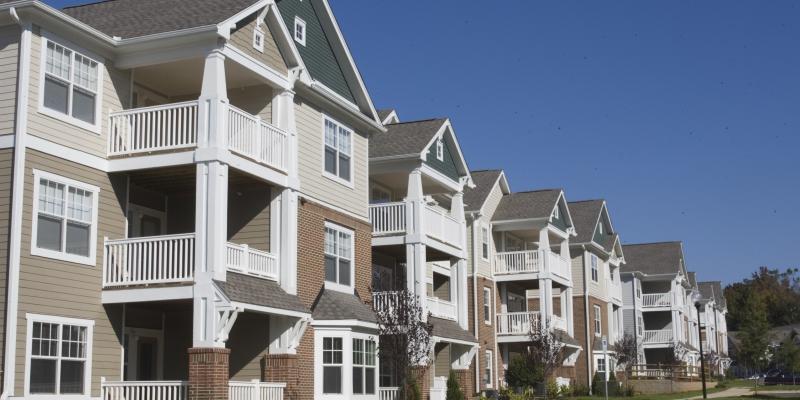
Release No. 081815-15
Press Contact Only:
Connie Helmlinger, NCHFA, 919-877-5607 [email protected]
Brian Rapp, NCHFA, 919-877-5655 [email protected]
Federal tax credits and other financing awarded Friday (Aug. 14) will build $470 million of affordable apartments in 36 North Carolina counties. The work is expected to support 9,500 jobs and generate more than $14.9 million in local tax revenue.
Tax credits and bonds were approved for 49 projects by the North Carolina Federal Tax Reform Allocation Committee, based on recommendations from the North Carolina Housing Finance Agency, from 130 applications that were received.
“We’re delighted with the high quality of the winning rental developments,” said A. Robert Kucab, executive director of the NC Housing Agency. “They will provide excellent places for working families and seniors to live—and they will also improve their communities and create thousands of jobs.”
The funding will produce 3,690 privately owned, privately managed affordable apartments. Eighty-four percent of the apartments (3,081 units) will be designated for families, and 609 units will house seniors. At least 283 of the apartments are targeted for persons with disabilities. [A list of housing developments by county is enclosed.] The new awards will bring the number of Housing Credit apartments built in the state to more than 70,600.
In addition to the federal tax credits, 22 of the properties will receive $10 million in loans from the Workforce Housing Loan Program, created by the General Assembly in 2014 to encourage development in low- and moderate-income counties. Awards range from $250,000 to just under $1 million. These properties will be located in 20 counties, including some where no affordable apartments have been built for several years, such as Randolph, Washington and Yadkin.
Loans totaling $12 million were also awarded to 15 of the projects by the NC Housing Finance Agency’s board of directors. Together, the additional resources make it economically feasible to build new apartments in lower-wealth counties and to reduce rents in urban counties.
All of the apartments are affordable for households earning 60 percent of a county’s median income, and many are affordable at 50 percent or 40 percent of median as the result of the additional financing. For a family of four, the maximum qualifying income ranges from $47,280 (60 percent in Wake County) to $20,320 (40 percent in low-income counties, such as Robeson or Wilkes). The state’s Key Program operating assistance makes apartments affordable for persons with disabilities living on Supplemental Security Income (SSI), which is currently $721 a month.
The NC Housing Finance Agency evaluates the tax credit applications on behalf of the NC Federal Tax Reform Allocation Committee. The highly competitive application process uses a quantitative ranking system and includes independent market studies of each property and site visits by agency staff. Each property is rated for architectural design, rent affordability, financial stability, capability of the development team, and criteria to ensure statewide distribution of the financing.
The NC Housing Finance Agency, a self-supporting public agency, has financed more than 231,000 affordable homes and apartments statewide since its creation in 1973.
###